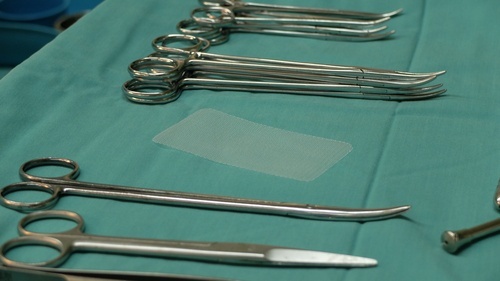The U.S. Food and Drug Administration (FDA) is responsible for approving all medical devices on the market in the United States, including hernia mesh devices. But so many of these FDA approved devices have turned out to be defective in one way or another. Defective hernia mesh devices have been the cause of serious side effects and substantial injuries, including — according to the FDA:
- Chronic pain
- Infection
- Hernia recurrence
- Adhesion
- Bowel obstruction
- Organ perforation
- Among other complications.
Many people trust medical devices because they trust the FDA. Here, we try to answer your questions you may have about the FDA and its approval of defective hernia mesh devices.
- 1. Does the FDA approve hernia mesh devices for the U.S. market?
- 2. How does the FDA approve these devices?
- 3. How does the FDA warn the public about approved medical devices?
- 4. What hernia mesh devices have been recalled?
- 5. Who should you contact if you believe you have been injured by either an FDA-approved or FDA-recalled hernia mesh device?

1. Does the FDA approve hernia mesh devices for the U.S. market?
The FDA’s Center for Devices and Radiological Health (CDRH) regulated companies that manufacture, repackage, reliable, and/or import medical devices that are sold in the U.S. market. Before a medical device can enter the U.S. market, the FDA must approve it. There are, however, several ways medical devices, including hernia mesh implants, can be approved.
2. How does the FDA approve these devices?
Approval of medical devices is dependent on the classification of the device. There are three classes. Class II devices require Premarket Notification 510(k) while Class III devices require Premarket Approval. There are exceptions to the requirements needed for approval in each specific class of medical devices.
The distinction between premarket approval and premarket notification 510(k) is any company with premarket approval must first conduct clinical studies, and because of this process, if a product is later found defective, the company cannot be sued. On the other hand, premarket notification 510(k) clearance is a faster process that does not require clinical studies.
3. How does the FDA warn the public about approved medical devices?
There are several methods and stages the FDA uses or goes through to warn the public. First, when the FDA learns that a company has initiated a correction or removal action of a medical device — like the Bard Davol Kugel Patch — it investigates and posts information on the same in its Medical Device Recall Database. 1 Second, if there is a significant risk to consumers, the FDA may issue press releases or other public notices. It also uses its weekly Enforcement Report to announce recalls, market withdrawals, and safety alerts. 2
4. What hernia mesh devices have been recalled?
There have been quite a few hernia mesh products that have been recalled in the last few years. Some of these recalled implants include
- Atrium’s C-QUR line
- C.R. Bard’s Kugel Patch, 3DMax, Ventralex, Sepramesh
- Ethicon‘s Proceed surgical and Physiomesh Flexible Composite.

5. Who should you contact if you believe you have been injured by either an FDA-approved or FDA-recalled hernia mesh device?
Your health is important to you. If you are dealing with complications or health issues after hernia repair surgery, always seek medical attention. Your doctor will evaluate your health and advise you accordingly. But once you meet with your doctor, it is always a good idea to seek legal counsel on your unique circumstances. If you qualify to file a hernia mesh lawsuit, any compensation you receive will help you and your family.
At Shouse Law Group, we have an experienced team of personal injury lawyers. We are now also accepting hernia mesh clients throughout the U.S. Call us today for a free consultation. We will review the facts of your case and advise you of your best options.
References
- FDA. Medical Device Recalls.
- FDA. Enforcement Reports.
